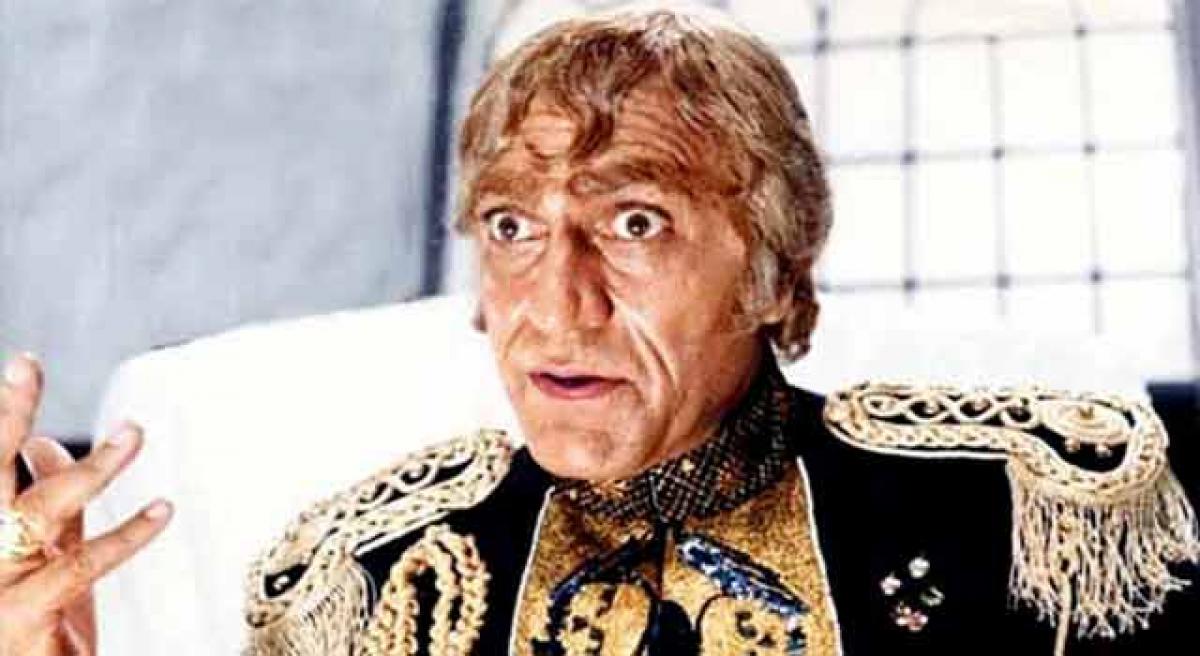Live
- Gaurav Bhatia slams Congress for promising freebies to infiltrators in Jharkhand
- LIC’s entry into health insurance to significantly boost its market share
- Why Covid-19 Vaccine protection wanes over time?
- First Look of Kaliyugam 2064 Unveiled by Mani Ratnam Ahead of Worldwide Release
- Sutraa Indian Fashion Lifestyle Exhibition kicked off at Taj Krishna
- Pokémon TCG Pocket to Introduce Card Trading in January 2025
- Nani unveils ‘MM 2’ title & first look
- Will challenge bail granted to actor Darshan in fan murder case in SC: Bengaluru Police Commissioner
- Chandrahass Launches Maruti Suzuki Dzire Through PJ Productions in Tolichowki Showroom
- Police case against farmers for tilling land claimed by Waqf Board in Karnataka
Just In

he film ‘Azhar’ makes me reasonable excited as it brings another work of one of my now favourite writers Rajat Arora to the table. To those of you who are uninitiated on Arora -- he is the man behind some very well-written scripts in recent years like ‘Taxi no 9211’, ‘Once upon a time in Mumbai’ (one and two), though the second one did not do as well as expected and ‘The Dirty Picture’. These movi
The film ‘Azhar’ makes me reasonable excited as it brings another work of one of my now favourite writers Rajat Arora to the table. To those of you who are uninitiated on Arora -- he is the man behind some very well-written scripts in recent years like ‘Taxi no 9211’, ‘Once upon a time in Mumbai’ (one and two), though the second one did not do as well as expected and ‘The Dirty Picture’. These movies worked as much as because of great direction and performances but equally for their scripts.
Many films in the tinsel town are spun around negative characters and in majority of the cases they set the cash registers ringing and rule the box office
‘Azhar’ and some of these mentioned above movies and not to forget classics like ‘Sholay’, ‘Deewar’, and RGV’s gangster trilogy of ‘Satya’, ‘Company’ and ‘D’ bring this question to my mind why Bollywood is obsessed with the negativity.
Why is it that our cinema ends up glorifying fallen angels? Or is it not our makers to blame but our own selves if at all we need to blame anyone at all?
Deep down we all know we have our own negatives to conquer. We keep failing in controlling them at times and then start the battle of winning them all over again. That probably makes us connect with the Sikander Mirzas on screen. That is why we kind of find Gabbar’s pride in his own evil enjoyable.
That is why for all the Munnabhai’s Sanjay Dutt has delivered we remember him as Subhash Ghai’s ‘Khalnayak’. Note the irony in the masterpiece Munnabhai series of feel-good films, Munna is actually a crime lord.
There is another reason why we love the Satyas; Bhiku Mhatres in ‘Satya’ and Vijay in ‘Deewar’. Despite the country being on a growth trajectory and the general feel good aura of the last two decades we have been victimised and exploited by the system of red tapes, crime and the general coldness of those who govern at times.
For the enjoyable pub cultures, we end up getting a Jessica here and there. So behind the smartphone and internet-immersed life some of us can never wash those scars away and therefore in these rogue men and women who defy the system and hit it back hard, at times with such power that the system itself comes to its knees, we find our dark desire of setting all right even if the means are not.
Therefore, while we know that the Vijay of ‘Deewar’ is a smuggler and is only adding to the decay further we cheer for him when he keeps moving up in the system.
There is another reason to which many will clearly or grudgingly agree, at times good is boring, and evil is fun. Therefore, Bhiku Mhatre becomes a much bigger memory for us than that upright inspector from ‘Shool’ which was played with the same intensity by the same director.
And the biggest example of an enjoyable villain was Mogambo. He wanted India to be broken into pieces. He wanted to be all powerful. Damn! He kills a sweet looking girl with a bomb inside a teddy bear. Trust me and how much ever you disagree with me, the fact is the kids found his “Mogambo khush hua” funnier than the sugar coated hero of the movie.
Mogambo is our next best iconic villain to Gabbar and incidentally was penned by the same writer duo of Salim-Javed.
This is why a producer takes a successful gamble of naming a movie after the villain – ‘Ghajini’ and laughs all the way to the bank.
The fourth and the greatest reason why evil characters work at the box office is the age old saying – “Girls like bad boys!” Take this example of ‘Darr’. Sunil the hero is actually everything that a girl will tell you in a coffee table talk, he is strong, he is stable, he can fight for his woman and he is loyal.
Yet who walked away with all the sighs and hearts of the lady – the slimy, spineless, stalking, mentally disturbed Rahul. So much that he became a superstar by throwing ladies off the roof in another movie released around the same time. I rest my case. Bollywood loves evil because we do. Negativity rules!
By:Rahul Deo Bharadwaj

© 2024 Hyderabad Media House Limited/The Hans India. All rights reserved. Powered by hocalwire.com







